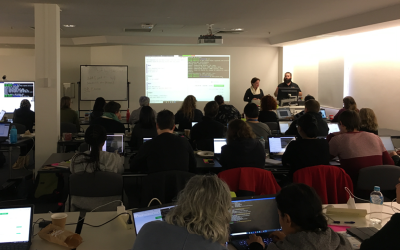Supporting The Carpentries
The Australian Research Data Commons (ARDC) is rolling out a series of activities aimed at increasing functional coding and data science skills for researchers and research support professionals through The Carpentries.
In early 2019, the ARDC initiated an Australia-wide consultation to assess the current levels of demand and support for Software and Data Carpentry training. The consultation provided critical information about the challenges of Carpentries expansion as well as identifying the possible next steps to increase training availability. As a result, the ARDC is rolling out a series of activities to address challenges such as:
- funding national Instructor Training events
- active involvement in Software Carpentry workshops around Australia
- co-organising and sponsoring an Australian CarpentryConnect in 2020
- developing best-practice guidelines for remote delivery of Carpentries training.
“We have received much interest from our stakeholders regarding the uptake and utilisation of The Carpentries training. There’s scope for us to boost Carpentries activities in areas of need by connecting institutions with instructors and providing coordination within national community activities” Matthias Liffers, Research Software Skills Specialist from the ARDC said.
 ARDC supported Carpentries workshop, Adelaide, Australia
ARDC supported Carpentries workshop, Adelaide, Australia
The Carpentries methodology emphasise best pedagogical practices to teach the use of practical software tools. They collaboratively develop openly-available lessons focusing on people who conduct and support research in numerous capacities. Some ARDC stakeholders have already adopted the Carpentries and taken up membership with The Carpentries organisation. The Carpentries builds global capacity in essential data and computational skills for conducting efficient, open, and reproducible research.
The ARDC are supporting The Carpentries together with CSIRO, AARNet, QCIF, Intersect and Pawsey Supercomputing Centre.
Contact us to register your interest in running workshops for researchers and research support professionals.
This post was originally published by ARDC News.